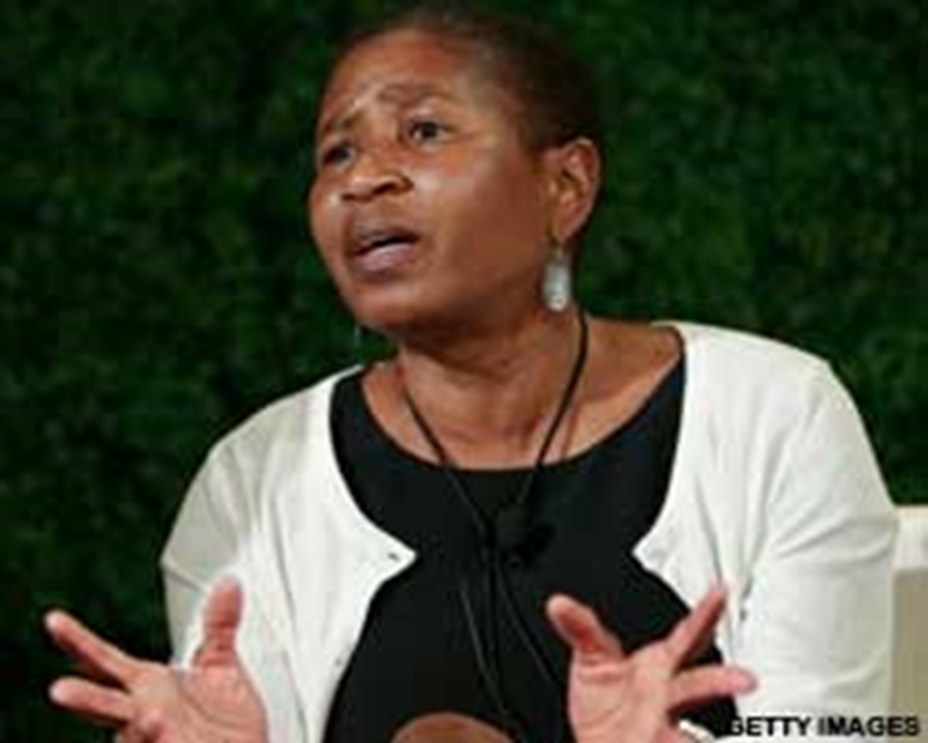The NBA's salary cap is directly based on revenue, and with yesterday's TV rights agreement, the league would "prefer to avoid" a dramatic spike in one season, which is why it has already reached out to the NBPA Exec Dir Michele Roberts to "begin negotiations of a 'smoothing out' period that would allow the cap to rise more gradually," according to Tim Bontemps of the N.Y. POST. NBA Commissioner Adam Silver yesterday said, “(Roberts) indicated a willingness to sit down and discuss it, but ultimately it requires two of us to reach a deal, and I think we both recognize that we’re going to have constituents on both sides of the issue" (N.Y. POST, 10/7). Silver also said that the league "will immediately revisit revenue-sharing based on new TV deal" (TWITTER.com, 10/6). Roberts yesterday in a statement said, "Although we have seen strong revenue growth and significant increases in franchise values over the past three years, it is clear that the league is now entering a period of unprecedented revenue growth. Our job will be to ensure that the players receive their fair share of the results of their efforts and that we do everything possible to maintain the growth and popularity of the game" (NBPA). SPORTING NEWS' Sean Deveney wrote under the header, "NBA TV Deal Presents Silver, Roberts With Opportunity To Gain Proper Footing." The league "does not need the union’s approval for how it installs the TV deal into the salary cap, but certainly," if Silver "wants to get off on a better footing than the one predecessor David Stern had with former union head Billy Hunter, consulting with Roberts would be a good start" (SPORTINGNEWS.com, 10/6). NBA.com's Steve Aschburner wrote under the header, "NBA's Media Deals A Victory, Barring A Squabble Over The Spoils." With the average annual value of the combined ESPN-Turner deal increasing from $930M to around $2.6B, the "per-team share jumps" from about $30M to "something closing in on" $90M (NBA.com, 10/6).
TIP OF THE CAP? GRANTLAND's Zach Lowe wrote the NBA and NBPA "would both seem to have some interest in avoiding any giant one-year leap in the cap number." There is "no way to avoid some shock to the cap figure at some point, but there are ways to ease the trauma." The league and its TV partners "could agree to make 2015-16 sort of a hybrid year, at some price point between" the old $930M and the new $2.6B figure. That would "raise revenues more than anticipated for 2015-16, and thus raise the cap beyond the current" $66.5M projection. For now, it seems like any "smoothing mechanism would have a minimal impact, if any," on the '15-16 cap. But there will be a "shock at some point, regardless of how the league and networks parcel out the cash over time." The cap "over the last
10 years jumped" 28% from $49.5M to $63.2M million. The league right now "projects" a jump to $66.5M for '15-16, "a modest rise pegged to the final year" of the old media deal. If the new TV deal kicks in for '16-17 "just shy" of $2B, the cap "could exceed" that same $14M leap, all the way to around $80M+ in a single year. If the new TV deal starts north of $2B -- "meaning it would include smaller year-over-year jumps" -- the cap for '16-17 "could leap even higher." If it started at $2.68B, it "would break" $90M (
GRANTLAND.com, 10/6).
SETTING A PRECEDENT: In DC, Michael Lee notes the "primary impact" of the new TV deal will be "felt in regard to player salaries and free agency." Teams, players and their agents have been "anticipating the explosion for some time." Cavaliers F LeBron James was eligible for a four-year, $88M contract when he decided to return to the Cleveland but "elected to sign a two-year deal -- with an opt-out clause after the first year -- with the expectation that his maximum contract would be substantially larger with a new, more lucrative broadcast deal in place" by '16. James would "appear to be one of the greatest beneficiaries" come '16. Silver said that in preparation for a "'profound effect' the deal will have on salaries ... he planned to work with the players' union to create a possible bridge for next season to avoid a dramatic change in the salary structure." Meanwhile, with more than 10 years of service in the league, James is "entitled to receive" 35% of the salary cap in a maximum contract. James: “I understand the business of this sport" (WASHINGTON POST, 10/7).
CAP CASUALTIES? ESPN.com's Larry Coon noted since TV money is "subject to revenue sharing, most of it will go to small-market teams." Likewise, the players will "benefit tremendously." Several other features of the CBA would "increase by a commensurate amount, including maximum salaries, the disabled player exception and the early Bird exception." The "sudden infusion of money" will have "pronounced effects on the league." Since teams are "required to spend at least" 90% of the cap on player salaries, a $16M cap increase "must be accompanied" by at least a $14.4M increase in payroll for every team in the league. This represents a "potential windfall" for the '16 free-agent class. But there "are downsides." It "puts pressure on players to accept shorter deals in order to become free agents again in 2016, which is bad for job security" (ESPN.com, 10/6).




